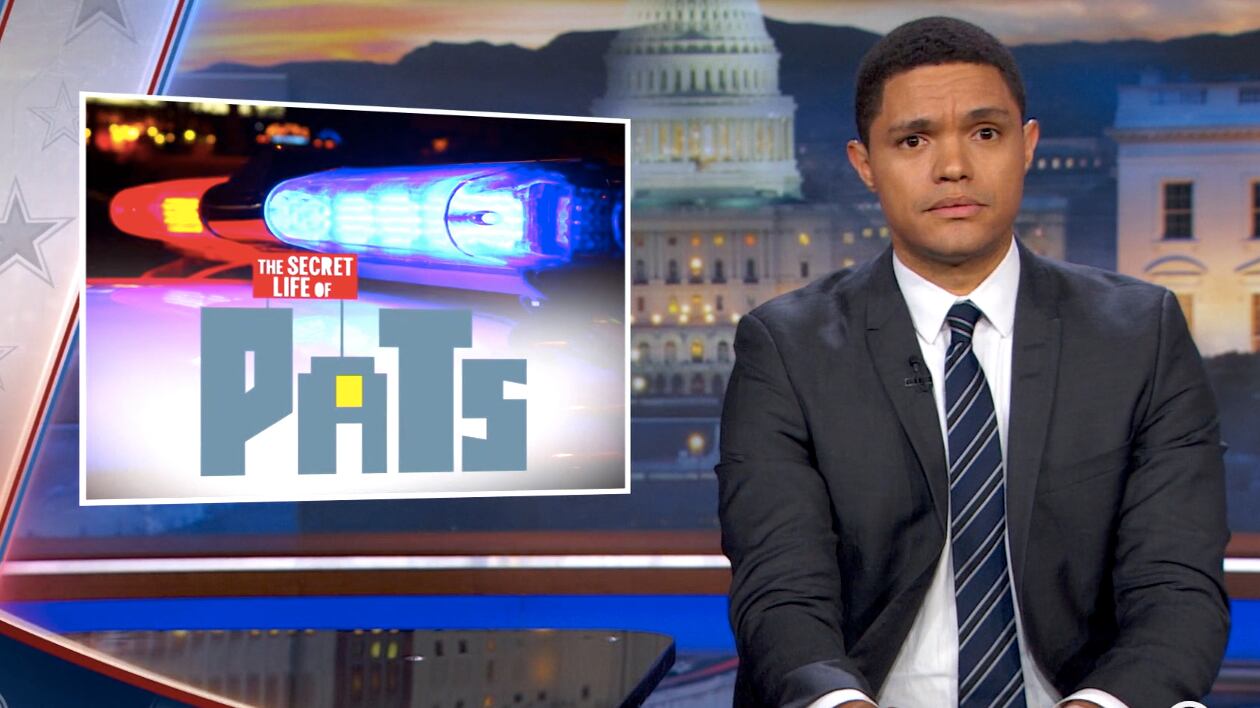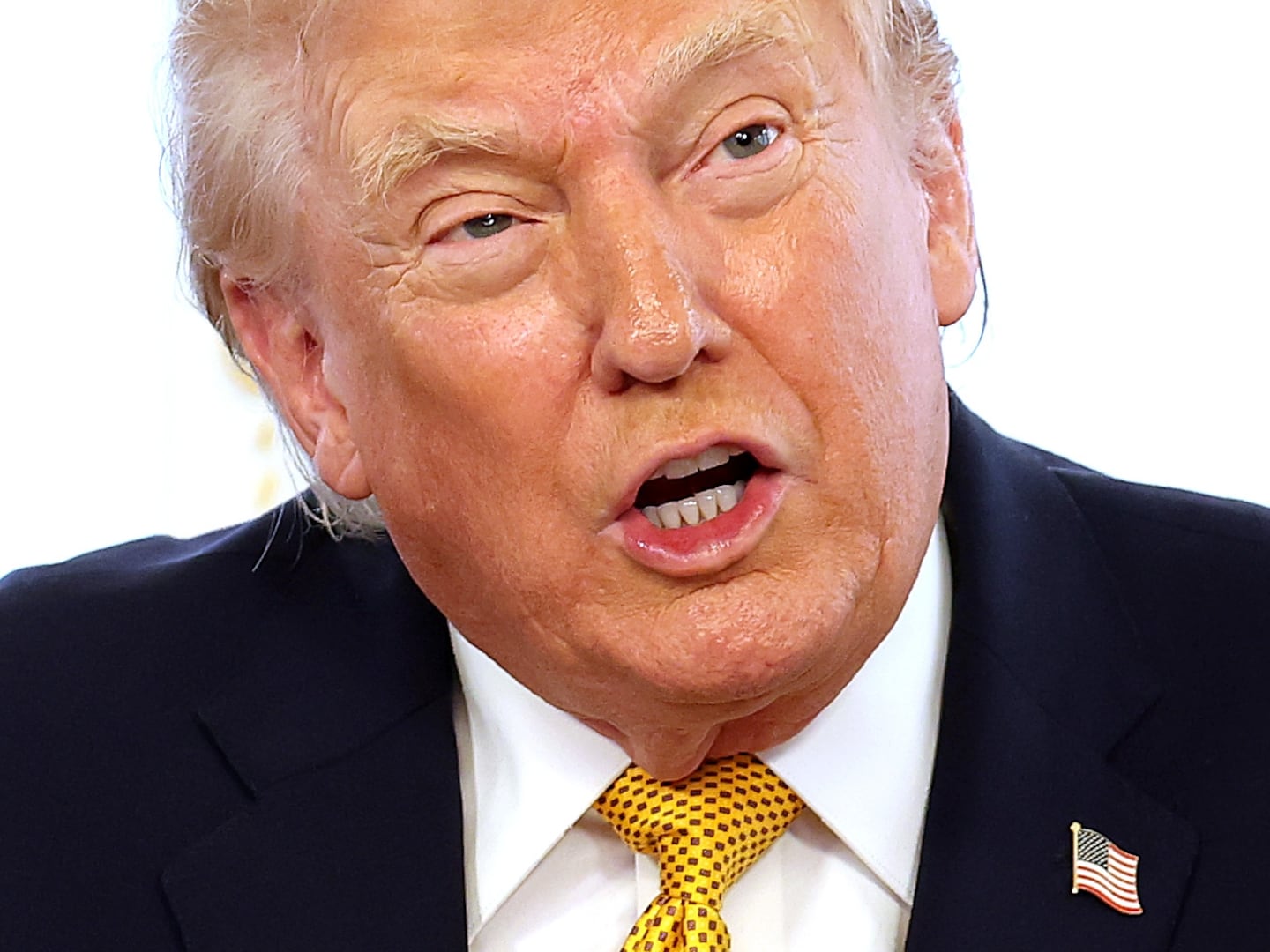On Thursday night, while Joe Biden roasted Donald Trump on Jimmy Fallon’s Tonight Show for bragging about paying little to no federal income tax, and Stephen Colbert pleaded with his viewers not to throw their votes away by backing Gary “What Is Aleppo?” Johnson, The Daily Show went after The Donald for his glowing endorsement of stop-and-frisk during the first big presidential debate.
You see, Trump is a New Yorker despite his status as a pampered, draft-dodging real-estate heir who hasn’t donated a dime of his own money to 9/11 charities. He also exploited a loophole to claim $150,000 in recovery funds for the terror attack; bragged that his building was now the tallest mere hours after the Twin Towers fell; and didn’t even visit the 9/11 Memorial until needing to curry favor with voters ahead of the 2016 New York primary. During his first presidential debate with former New York Sen. Hillary Clinton—who actually did plenty to help New York heal in the wake of the 9/11 attacks—Trump made a plea for a return to stop-and-frisk: the (proven racist) policy of police stopping and frisking “suspicious” people in public.
“Well, first of all, Secretary Clinton doesn’t want to use a couple of words, and that’s ‘law and order,’” said Trump during the debate, stealing an old Nixon campaign catchphrase (just as he trademarked “Make America Great Again” even though it originated with Reagan’s 1980 presidential campaign). He later added, “You have to have stop-and-frisk.”
Cue The Daily Show’s Trevor Noah, who on Thursday proceeded to break down exactly why stop-and-frisk was—and is—so damn problematic.
“Think of it like the TSA. You know when you’re at the airport and you’re getting patted down? Now imagine if instead of patting, they’re violently going through your pockets, throwing you against the wall, cursing you out in front of everyone. Oh, and on top of all that? There are no flights,” said Noah.
The comedian then ran a montage of innocent people—almost all people of color—recounting traumatic stop-and-frisk incidents in their past, including having guns pointed at their heads, their heads slammed against a pole, and, in one particularly egregious exchange, police throwing a black man onto the ground for simply asking why he was being frisked in a local barbershop while shouting, “I’m not resisting!”
“You know, whenever you see a video like this you can’t help but wonder how many earlier incidents we will never know about because people didn’t have camera phones back then,” said a solemn Noah.
But the reality is that while Trump sang the praises of stop-and-frisk under the mayoral tenure of his paid campaign surrogate—and fellow thrice-married New Yorker—Rudy Giuliani, it remains highly debatable whether the program even had a direct effect on crime numbers.
“Crime is affected by many factors, and New York’s decline in crime mirrored the decline in many other major cities at the time. Moreover, crime was declining for four years before Giuliani took office, and it continued to decline for 14 years after he left,” reported The Washington Post, also providing statistics for how crime has declined in New York City under the de Blasio administration since doing away with stop-and-frisk. The paper awarded Trump’s debate claim “Three Pinocchios.”
And on top of all that, it’s racist. “Now you may be thinking, ‘Oh, well who cares? Those guys are criminals, so they got what’s coming,'” said Noah. “But here’s the thing that Trump and many stop-and-frisk supporters seem to gloss over: At its peak in New York, there were almost 700,000 stop-and-frisk searches. Eighty-eight percent of those searches turned up nothing. That means in one year there were 605,000 stops when people had done nothing wrong. What’s even worse is that many of these were teenage kids.”
“It’s especially problematic to say that it’s going to heal the racial divide,” Noah added, when you consider that, between 2004-2012, of the 4.4 million people stopped in New York City for stop-and-frisk, 87 percent were black or Latino. In Chicago, nearly three-quarters of all stop-and-frisk incidents targeted people of color.
“Although stop-and-frisk is supposed to be applied equally, in reality, most of the time it only affects people of color,” said Noah, “like rhythm.”






